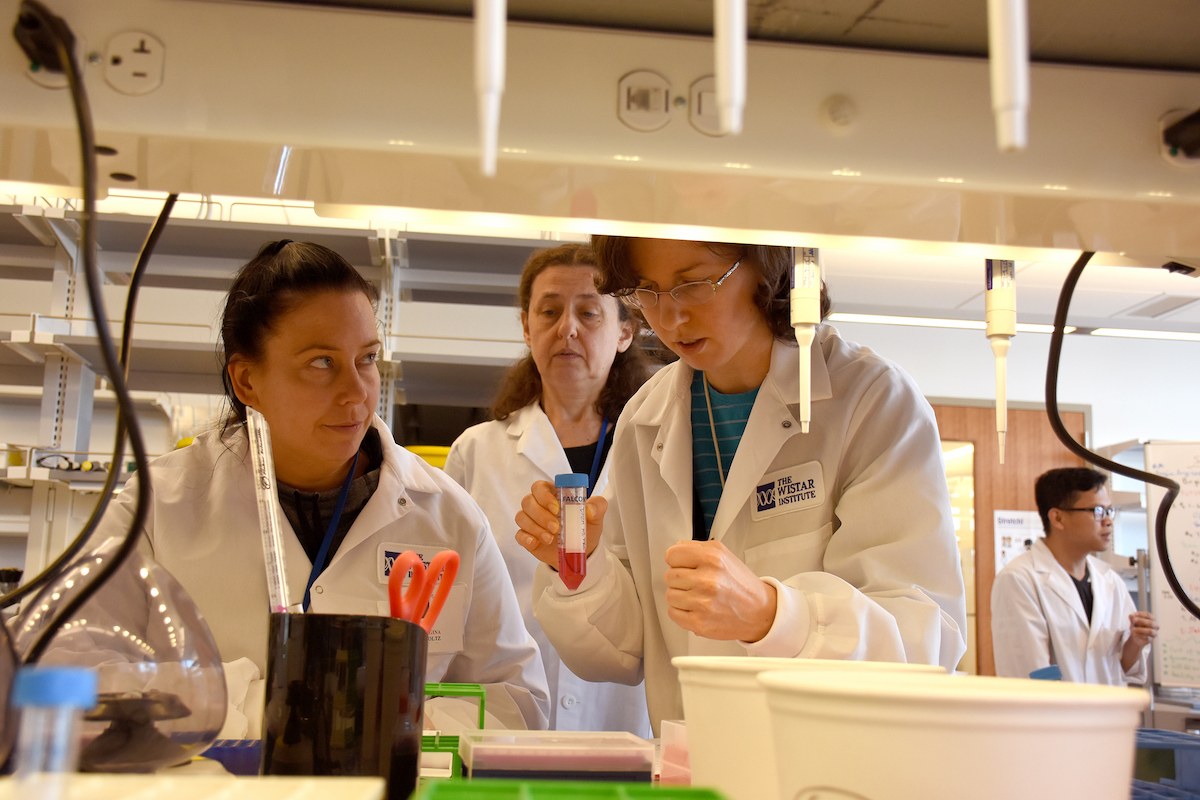In 2019, the Philadelphia region was home to just under 5,000 cell and gene therapy jobs. But in 2029, we could be looking at more than doubling that figure, a report commissioned by three regional economic and research groups found recently.
The Chamber of Commerce for Greater Philadelphia’s regional CEO Council for Growth, the University City Science Center, and University City District’s West Philadelphia Skills Initiative banded together with support from the Lenfest Foundation to take a closer look at the state of jobs in cell and gene therapy, along with the industry’s future.
The project, titled the “Cell and Gene Therapy and Connected Health Workforce Analysis,” found that cell and gene therapy jobs will likely grow between 35% to 94% in the next 10 years with mid-range growth estimates and as much as 54% to 136% with high-range growth estimates.
So, a decade from now, we could see anywhere between the low-end projection of 7,608 jobs and the high-range projection of 11,274 jobs.
Surveys, interviews and focus groups with academic researchers, industry and human resources experts, and workforce development organizations informed the report, and helped develop potential scenarios, the Science Center said in a release.
“The objective of the study was to characterize the current landscape, assess growth scenarios and project future talent needs for these two particularly dynamic industry subsectors,” said Saul Behar, the Science Center’s SVP for advancement and strategic initiatives.
The findings confirm that the region is on track to become a leader in the space, and that Philly is positioned to recruit and train thousands of new employees over the next few years, Behar said.
Those jobs will likely pull from the wealth of pharma companies in the region, but will still require some extra training, the report said. Roles like manufacturing technicians, particularly within contract manufacturing organizations, might rise in demand as tech innovations allow for growth in therapy manufacturing.
And as cell and gene therapy firms grow, there will be opportunities for a diverse workforce from multiple education and skill levels, and firms will also require workers with backgrounds in finance, information technology, legal services, human resources and general operations.
(Ensuring that jobs in the biotech and cell and gene therapy space are not just for highly educated folks has been the focus of recent efforts of a handful of organizations across the city, including the West Philadelphia Skills Initiative; find a deeper dive into that initiative here.)
And to attract talented workers, startups “must be able to explain their distinct value proposition offered by working in an emerging, fast-growing industry,” the report said.
The study was conducted before the coronavirus pandemic began in the region, but those collaborating on the study think that it will actually help spur innovation in the region.
“The search for new cures, therapies and treatments, as well as the role of data analytics, and the importance of connected health are top of mind and will continue to be a core strength of and competitive advantage for our region,” said Claire Marrazzo Greenwood, executive director of CEO Council for Growth.
Join the conversation!
Find news, events, jobs and people who share your interests on Technical.ly's open community Slack

Philly daily roundup: Earth Day glossary; Gen AI's energy cost; Biotech incubator in Horsham

Philly daily roundup: Women's health startup wins pitch; $204M for internet access; 'GamingWalls' for sports venues

Philly daily roundup: East Market coworking; Temple's $2.5M engineering donation; WITS spring summit


